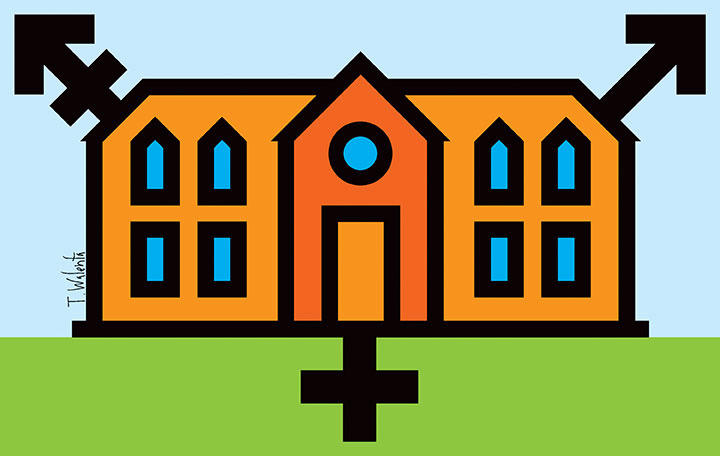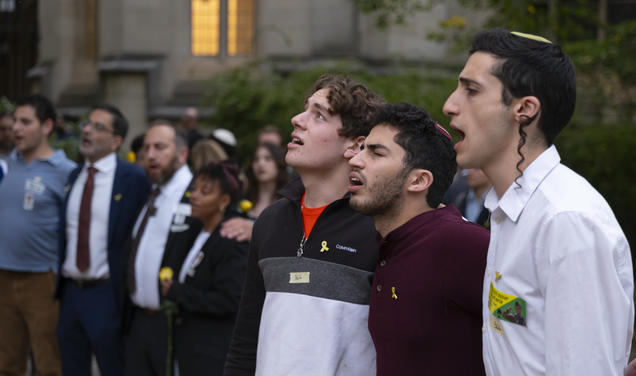
The University’s announcement in December that the upcoming room draw will offer gender-neutral housing to the entire campus was the culmination of a strong student advocacy effort.
Previously, only 10 percent of the total number of undergraduate beds had the option of being gender-neutral — allowing two or more students to share a multiple-occupancy dorm room without regard to gender. Suites were required to have one more room than the number of students living in them; these tend to be the most popular and typically are taken early in room draw by single-gender groups.
Gender non-conforming students who reached out to LGBT Center director Judy Jarvis during room draw last year were “extremely distressed” because of difficulties in obtaining gender-neutral housing or rooms with private bathrooms, Jarvis said.
Students set out to demonstrate that there was broad support to expand gender-inclusive housing, which began as a pilot program in 2010–11. Lily Gellman ’17 and Andrew Hunt ’17 created a website (betterprinceton.org) that included a series of personal statements — some anonymous and some signed — in which students described how the housing policy had affected them personally.
Among the students was Lafayette Matthews ’17, who said his concern as a transgender man about using the “wrong” bathroom and other stressful housing experiences showed that “this space wasn’t intended for a student like me. I feel less welcome and less affirmed. And no student should feel that way.”
Student advocates also held a teach-in on the issue at Frist Campus Center, circulated a petition that gathered more than 500 signatures, and sent out a campus-wide survey. Among the comments left by students: “It’s about time we enter the modern world” and “Please, place the well-being of the students who really do need this over the vague discomfort of some ‘principled’ alumni.”
Under the new policy, no students will be assigned to mixed-gender housing unless they choose it, and the University said it does not encourage the option for those in romantic relationships. Jarvis said incoming freshmen have been able to request gender-neutral housing, and this will continue under the new policy.
“It is huge that in the past few months the administration decided to move forward with this effort,” Gellman told The Daily Princetonian. The new policy, she said, “will make so many students feel safer, more comfortable, and happier in their rooms.”











0 Responses